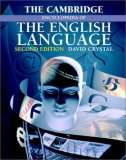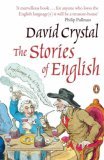Language resources
Most of these sites provide free resources. Just click on a link to go directly to the site. Don't miss the Word of the Day page for a double helping of words each day! The Literary Connections Blog often comments on quirks of language too.
Corpus linguistics
These sites give you access to corpus linguistics tools - valuable resources for language study that deserve to be better known. You may may need to spend a little time learning how to make the most of these - but it will be worthwhile!- The British National Corpus. You can search and retrieve a sample of the resources without a subscription. There is also access to the complete corpus, ready searched, at:
- VIEW: Variation In English Words and Phrases from Brigham Young University. Here you can 'quickly and easily search for a wide range of words and phrases of English in the 100 million word British National Corpus'. Show your students how this works and this can be a tremendous resource, especially for A Level.
- COBUILD: Collins Wordbanks Online
- WebCorp: lets you search the Internet as a language corpus
For some ideas on how to use these resources, see:
- Word of the Week: free sample articles on English Online.
- The Web as corpus: using media sites to present new or unfamiliar words - an article on the Macmillan English Dictionaries site by Word of the Week writer Mairi MacDonald, looking at ways to explore words using corpus resources available on the Web.
- Word of the Day page for the Literary Connections email service.
Dictionaries
Dictionaries available online include:- Cambridge University Press Online Dictionary
- Chambers 21st Century Dictionary (The Chambers Thesaurus is also available)
- Dictionary.com makes available a number of online dictionaries with a single search. There's a thesaurus as well.
- Freesearch dictionary (from Cambridge Advanced Learner's Dictionary)
- Mirriam-Webster online from 'America's foremost publisher of language-related reference works'. Also has a 'Word of the Day' - see below.
- Oxford - search the Compact Oxford English Dictionary. The huge Oxford English Dictionary is also available online, by subscription. See this Guardian interview with the Editor: 'Shedloads of hoodies: John Simpson is taking the Oxford English Dictionary on to the web and, after rigorous testing, 40 volumes of new words and revisions are going with him.' Visit our Word of the Day page for a fresh sample from the OED's riches each day.
- Scottish National Dictionary: for more on Scots, see Scots online, below.
- Wiktionary - a free wiki dictionary from the Wikimedia Foundation.
define: wordGoogle will provide definitions of the word (or words) you place after the colon from a range of sources. It doesn't matter whether or not you leave a space after the colon.
Users of the Firefox browser can have Chambers Dictionary, Dictionary.com, Google, Wikipedia and many other reference and search tools instantly accessible from their toolbar. This speeds up searching and is one of many reasons to try this alternative to Internet Explorer.
Grammar
- The Internet Grammar of English: 'An online course in English grammar written primarily for university undergraduates. However, we hope that it will be useful to everyone who is interested in the English language.'
- The KS3 Grammar site by Dick Hudson (University College London): 'a tutorial in grammar for teachers of English at Key Stage 3.... It explains all technical ideas and terms, and makes some suggestions for using them in teaching.'
- The HyperGrammar: a substantial, accessible and well designed grammar from the Writing Centre at the University of Ottawa. There's a lot to read and some terms may not correspond to the UK Literacy Strategy (just in case you cared) - but don't be put off by the old-fashioned look. Hyperlinks are well used to cross-reference material.
- Common Errors in English by Paul Brians, Professor of English, Washington State University - firmly in the prescriptive tradition and suitably old-fashioned looking, but very comprehensive and worth exploring.
- The Guide to Grammar and Writing by Charles Darling: covers descriptive and prescriptive grammar and offers general advice on effective writing.
- Teaching English Grammar in Schools: creating a web-based platform for English language teaching and learning. Although this project from University College London is not yet complete, it promises to produce some interesting resources which will be tested in London schools.
Voices on the Net
- BBC Voices site: samples of the varieties of English (and other languages) to be heard around the UK. Visitors can contribute - and there are background talks from Professor David Crystal.
- British Library Collect Britain site: speech samples, often of historical interest, with recording data and dialect features.
- Sounds Familiar? - accents and dialects of the UK: new British Libray education site captures and celebrates the diversity of spoken English in the second half of the twentieth century, illustrated from the Library's rich sound archives.
Speeches online
- American Rhetoric: 'Database of and index to 5000+ full text, audio and video versions of public speeches, sermons, legal proceedings, lectures, debates, interviews, other recorded media events, and a declaration or two'. From Martin Luther King to Elie Wiesel, you can hear them in recordings and read transcripts. The Rhetorical Figures in Sound section is interesting.
Texts in Context
- Texts in Context from the British Library: From recipes to adverts, letters to logbooks, from humorous to serious to just quirky. Over 400 wonderful texts to explore.
News sites
News sites such as these are valuable sources of language material:
Two sites from David Crystal
These are subscription sites but samples of the content are free:- Find Out - a general knowledge database site
- Shakespeare's Words: the data in the book Shakespeare's Words (Penguin) by David and Ben Crystal, together with all the information that wouldn't fit into it.

Books for language study
Just a few of the many books teachers recommend, including some by David Crystal, of course (see also his website links, above)- The Cambridge Encyclopedia of the English Language, David Crystal, CUP - invaluable for A Level and fascinating for anyone interested in language.
- The Stories of English
- David Crystal, Penguin paperback, 2005. Commended by Roger McGough and Philip Pullman - and described in The Guardian as the book Crystal was always meant to write.... It manages to be both extraordinarily learned and accessible.'
- Bloomsbury Dictionary of Word Origins
by John Ayto: the histories of over 8,000 words explained.
Words on the Web
These sites give some fascinating information on the richness of English:- Balderdash and Piffle from the BBC series. The wordhunt continues on the site: can you provide an earlier date than 1994 for the use of 'mullet'? Some interesting activities on the page, too.
- Collins Word Exchange: 'somewhere to air those neologisms... add your texting terms and submit new definitions'. It includes 'Jeremy's Week in Words', a series of articles from the Editor-in-Chief of Collins dictionaries.
- Merriam-Webster's Word of the Day from the American dictionary site (see link in left-hand panel); you can also sign up for a free email version.
- Take our word for it: a bi-weekly word-origin webzine.
- A Word A Day: subscription service (with free option) that sends out a word every weekday.
- World Wide Words from Michael Quinion - a fascinating site with over 1600 articles on the quirks of the English language from the author of Port Out, Starboard Home
.
Scots online
Sites that explore and celebrate the Scots tongue. See also the Scottish National Dictionary, above.- The Scots Magazine Wirds page: Scottish English words (with translations)
- Scots-Online: a guide to the pronunciation, grammar and idiom of modern Scots.
- Scots Wikipaedia: the first encyclopaedia in the Scots leid!
Weblinks - more online resources
These sites provide more resources and links for teachers and students interested in English language:- A-Level English Language resources from Lancaster University: resources and some questions and answers - useful, especially if you are thinking of studying language or linguistics beyond A Level. Some of the links seem, however, to be broken now.
- BBC Routes of English: the website to accompany the fascinating BBC radio series. Programme notes cover a wide range of topics and include sound files that allow the user to sample various accents and listen to scholars talk about language.
- English Language @ SFX: a blog from Dan Clayton, which, like Julie Blake's Language Legend looks at aspects of language with especial relevance to A Level English. As one teacher says, "These two deserve a medal!"
- The English Language List from Mark Boardman: 'a discussion community for teachers of A Level English Language, with particular reference to AQA Specification B'. One enthusiastic teacher says, 'the group has many generous members who offer resources and chatter about all things A Level languagey.'
- Geoff Barton's website has resources for GCSE English, A-level English Language and Communication Studies - mostly handouts and worksheets.
- The Language Legend: a lively blog from Julie Blake, 'keeping you posted on cool stuff happening in the world of words'.
- Lexicon of Linguistics: from 'A-bar binding' to 'zero morpheme', a comprehensive list of terms from the Utrecht Institute of Linguistics.
- Universal teacher: Andrew Moore's teaching resource site has some excellent resources, especially for A Level language.


